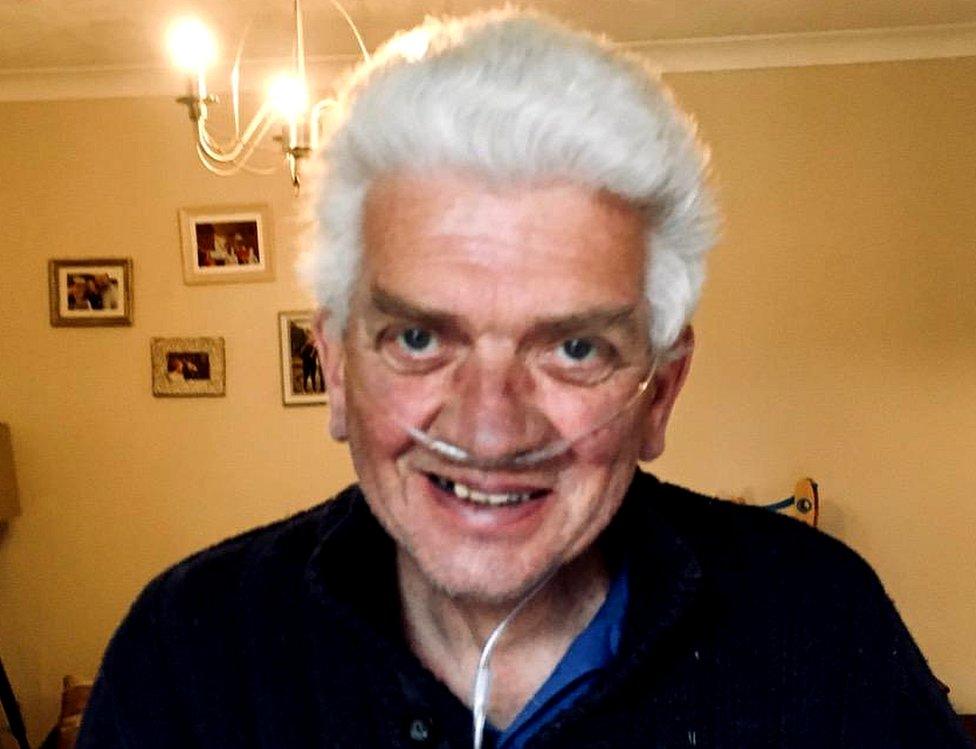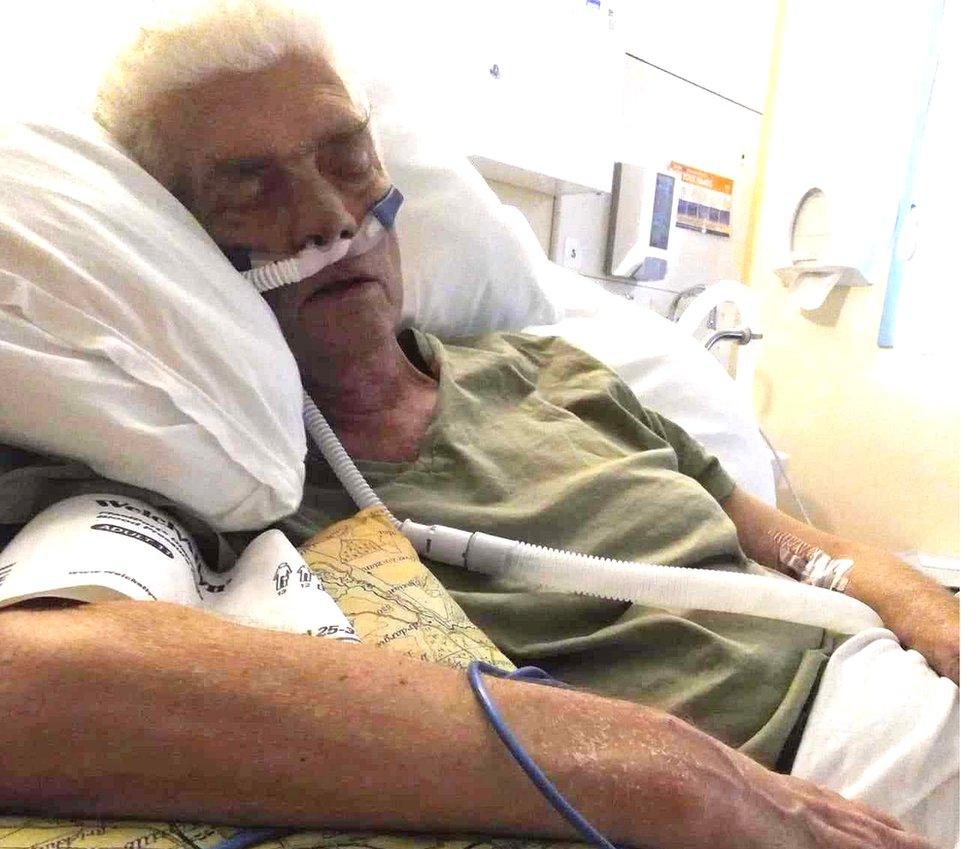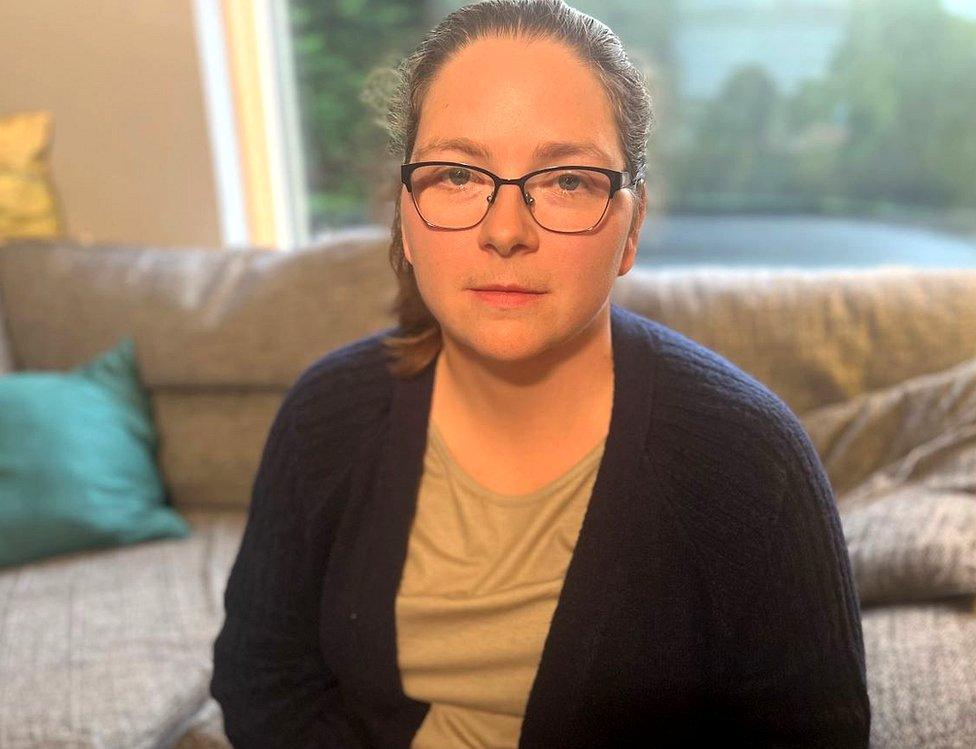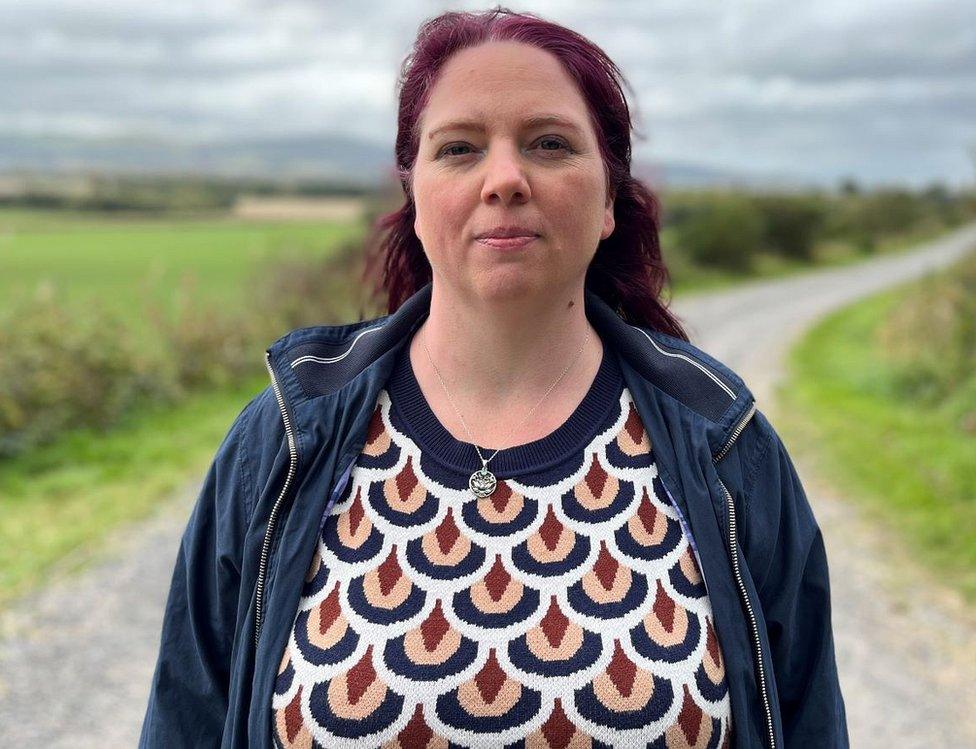Calls for Willie's Law after sick dad signed assets away
- Published

Perth farmer William Johnston died in January 2020
The family of a man who signed away almost half a million pounds of his assets on his deathbed are trying to change the law to protect vulnerable people.
Perth farmer William Johnston handed over £425,000 to his business partner while terminally ill in hospital.
The lawyer involved in the signing was later sanctioned for professional misconduct for his actions in the deal.
However, the changed documents are still in effect.
William's daughters now want "Willie's Law" to ensure that a medical professional co-signs all legal documents of a vulnerable person to show they have capacity.
Capacity is the legal term which describes a person's ability to make decisions and understand what they are doing when they make decisions.
Karen Lee, one of William's daughters petitioning the Scottish government for a law change, believes a medical professional would have stopped her dad signing the contract.
Under current Scottish law a solicitor does not need to seek a medical opinion if they are satisfied that their client has capacity.

Mr Johnston said he could not remember signing legal documents and the changes now stand after his death
Ms Lee told BBC Scotland News: "My dad was in hospital, he was in high dependency, he was on a lot of medical treatment, he was a vulnerable person.
"If we'd had a medical professional asked I don't think this document would have been signed.
"I don't think any medical professional would have said he was in a fit state to sign and make decisions like that."
On 30 December 2019, William Johnston was visited in hospital by his lawyer Craig Harvie, acting on behalf of William and his business partner regarding their farm in Perthshire.
Less than two weeks later, the farmer told his daughters Laura Johnston-Brand and Karen Lee that he had no memory of signing the documents.
He died in hospital on 19 January 2020 aged 60.

Karen Lee thinks a medical professional would not have approved the signing of the contract
Ms Johnston-Brand believes her father's final few days were ruined by worry over what was going to happen to his farm and what he was leaving his family.
She believes Willie's Law would have changed those final moments.
"We would have been able to sit with my dad, we would have been able to spend time reminiscing over memories that we had instead of trying to fight a situation that nobody should be put in," she said.
"My dad was denied a dignified death, he was denied the opportunity to die peacefully, he wasn't able to rest in his final moments.
"It was a horrific death because he didn't want to leave us in this situation."
After a four-year legal fight, William's lawyer was found guilty of professional misconduct by a Scottish Solicitors Discipline Tribunal and fined £5,000.
However, under current Scottish legislation he had not broken any laws in terms of seeking to make sure William had capacity to sign the documents.
Dundee lawyer Stephen Forsyth of MML Law believes a change could help provide a level of protection for families and solicitors.
He said: "Anything to give a granter, the family or indeed a solicitor an extra level of protection would be a good thing so the petition in principle is a good idea.
"In borderline cases if there was a requirement and it was signed off by a medical professional then, yes, I think disputes would fall."

Laura Johnston-Brand said her father spent his last moments worrying about what would happen to his farm
Mr Forsyth stressed that any law would need to work in tandem with medical professionals so as not to overburden them.
The Law Society, however, does not back any change in legislation.
A spokesperson said: "We have sympathy with any family dealing with legal complexities around the death of a loved one, but the Law Society would not support any proposal to make medical oversight of legal documents a mandatory requirement.
"Even if the medical profession had the capacity to take on this additional burden, it would add significant complexity to what's already a robust process and in turn add to the cost and time required to prepare legal documents.
"The Law Society believes the current safeguards strike the right balance to support clients, protecting vulnerable people while minimising delays which could in some cases lead to people dying without their wishes being legally fulfilled."
Craig Harvie was approached for comment but did not respond.